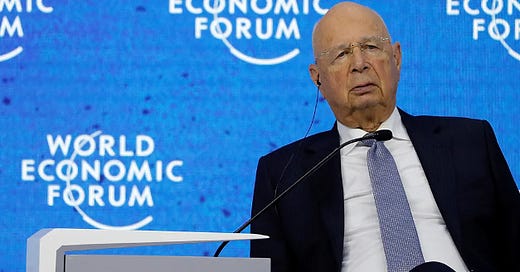
Kamalanomics: Robbing the Future to Appease the Present
"Rather than expanding government control over vast swaths of the economy, policymakers should focus on creating the conditions for organic economic growth."
As the 2024 presidential race ramps up, Vice President Kamala Harris has unveiled an economic agenda that she claims will lower costs for American families and boost economic growth. However, her proposals reveal a reliance on heavy-handed government intervention that will harm the very people she aims to help. At the core of Harris’ approach is a fundamental distrust of free markets and a belief that the government can effectively micromanage the country’s economic systems.
One of Harris’ most concerning proposals is her plan to impose federal limits on price increases for food producers and grocers. While rising food prices are undoubtedly a burden for many families, attempting to control prices through government intervention is a recipe for disaster. Price controls invariably lead to shortages and black markets. Looking at the failures of price controls in countries like Venezuela is enough to see the devastating consequences of such policies. Instead of allowing market forces to efficiently allocate resources and incentivize increased production, Harris’ approach will result in reduced investment in the food industry and potential shortages of staple goods.
Harris’ housing proposals similarly rely on heavy-handed government intervention. Her plan calls for the construction of 3 million new housing units to ease supply shortages, along with providing $25,000 in down payment support for first-time homebuyers. Having the federal government directly subsidize construction on this scale risks crowding out private investment, leading to crippling public sector inefficiencies.
Instead, housing reform should focus on removing regulatory barriers to new construction at the local level. Restrictive zoning laws and mandates are the primary culprits behind America’s housing shortage. By incentivizing states to improve these processes, we would promote private sector housing development without incurring massive federal spending. The solution is less government intervention, not more.
Harris’ tax proposals also reflect a misguided belief that we can tax and spend our way to prosperity. By seeking to raise taxes on corporations and high-income individuals, she risks reducing the capital investment needed to drive productivity growth and real wage increases.
The vice president also plans to expand various subsidies for housing, childcare, and other expenses. While they appear to give support to families, these policies fail to address the root causes of affordability challenges and risk creating new forms of government dependency. A better approach would be to pursue policies that decrease the government influence in the economy which causes the inflation that is harming families.
Proponents of Harris’ plan argue that it will provide much-needed relief to struggling American citizens. However, the long-term consequences outweigh the potential short-term benefits. According to an analysis by the Penn Wharton Budget Model, Harris’ economic proposals would increase federal deficits by $1.2 trillion over the next 10 years on a conventional basis, and by $2.0 trillion when accounting for macroeconomic effects. This massive increase in government debt will tend to crowd out private investment and lead to higher interest rates, potentially triggering a recession.
Moreover, the Penn Wharton analysis projects that Harris’ plan would actually reduce GDP by 1.3 percent by 2034 and by 4 percent within 30 years, relative to current law. This decline in economic output would translate to lower wages for workers across all income groups. The model estimates that pre-tax wages would fall by nearly one percent over the next decade and by 3.3 percent by 2054.
These projections highlight the central flaw in Harris’ approach: by prioritizing short-term government intervention over policies that foster long-term economic growth, her plan risks making everyone worse off in the long run.
Ultimately, Harris’ economic vision reflects a belief that enlightened bureaucrats and politicians in Washington can effectively plan and manage a $25 trillion economy. But the failures of central planning throughout history show that free markets remain the greatest engine for prosperity and human flourishing.
Rather than expanding government control over vast swaths of the economy, policymakers should focus on creating the conditions for organic economic growth. This means maintaining sound monetary policy, reducing regulatory burdens, promoting free trade, and fostering innovation and entrepreneurship. Economic freedom, not top-down control, is the most effective way to build a more prosperous future for all.
QTR’s Disclaimer: Please read my full legal disclaimer on my About page here. This post represents my opinions only. In addition, please understand I am an idiot and often get things wrong and lose money. I may own or transact in any names mentioned in this piece at any time without warning. Contributor posts and aggregated posts have been hand selected by me, have not been fact checked and are the opinions of their authors. They are either submitted to QTR by their author, reprinted under a Creative Commons license with my best effort to uphold what the license asks, or with the permission of the author. This is not a recommendation to buy or sell any stocks or securities, just my opinions. I often lose money on positions I trade/invest in. I may add any name mentioned in this article and sell any name mentioned in this piece at any time, without further warning. None of this is a solicitation to buy or sell securities. I may or may not own names I write about and are watching. Sometimes I’m bullish without owning things, sometimes I’m bearish and do own things. Just assume my positions could be exactly the opposite of what you think they are just in case. All positions can change immediately as soon as I publish this, with or without notice and at any point I can be long, short or neutral on any position. You are on your own. Do not make decisions based on my blog. I exist on the fringe. The publisher does not guarantee the accuracy or completeness of the information provided in this page. These are not the opinions of any of my employers, partners, or associates. I did my best to be honest about my disclosures but can’t guarantee I am right; I write these posts after a couple beers sometimes. I edit after my posts are published because I’m impatient and lazy, so if you see a typo, check back in a half hour. Also, I just straight up get shit wrong a lot. I mention it twice because it’s that important.

















Politics attracts big mouths and small intellects, people who couldn't EVER make it in the big commercial world. Their massive egos and fat salaries make them think they are clever, but their simplistic and stupid ideas never work. They can't even keep the streets clean or safe, don't let them ANYWHERE NEAR big budgets.
Suddenly, I'm thinking of musical chairs. It's a game where there are more people who are seeking a chair, than there are chairs. Figuratively speaking, in real life we want a chair for everyone. But Kamala, as usual, misses the point. That's what happens when people think of an economy in terms of money, which is just a figment of our imaginations, instead of in terms of productivity, which is as real as real gets.